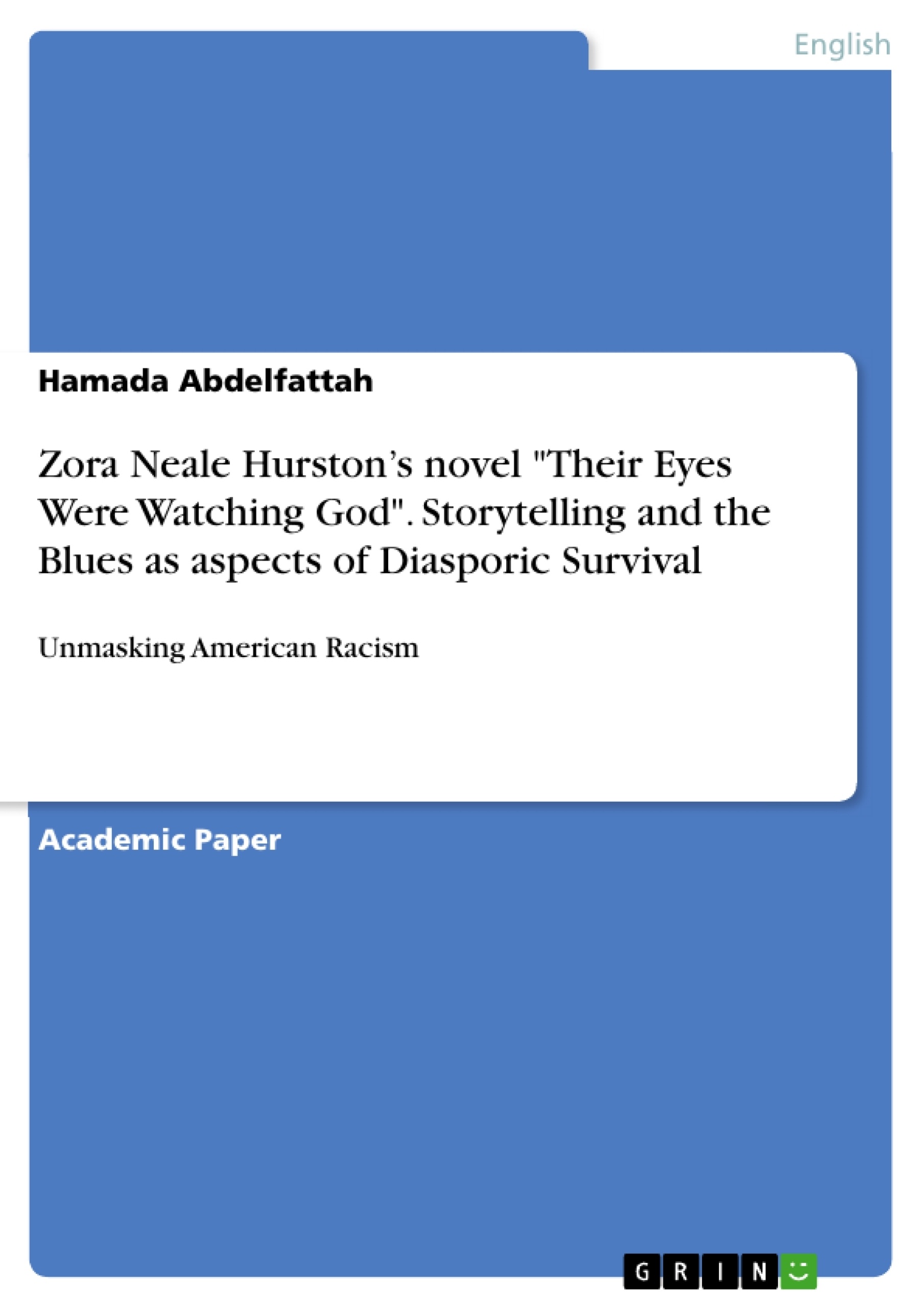Zora Neale Hurston used Black American slang to uncover racism against her black folk. She employed not only slang languages of her black folk but also her African culture heritage. Her novel "Their Eyes Were Watching God" is examined to demonstrate how storytelling and the blues, as aspects of diasporic survival, function in her fiction which depicts how African cultural heritage operates in the United States. She articulates the need for her black folks throughout diaspora to confront racism by employing their African cultural heritage as a vehicle for empowerment. Janie, Hurston’s protagonist, finds that when she embraces her African heritage not only does she gain great awareness of her selfhood better as African American, but she also discovers that her Africanity and her identity are intertwined.
Inhaltsverzeichnis (Table of Contents)
- Abstract
- Zora Neale Hurston (1891-1960)
- Narrating One's Own Story
- Their Eyes Were Watching God
- Janie's Search for Identity
- Their Eyes as a Nonlinear Narrative
- Janie's Childhood and Memories
Zielsetzung und Themenschwerpunkte (Objectives and Key Themes)
This essay analyzes Zora Neale Hurston's novel, Their Eyes Were Watching God, to explore how storytelling and the blues serve as mechanisms for diasporic survival within the African American community. The essay examines how Hurston utilizes African cultural heritage as a tool for empowerment in the face of racism and explores the journey of Janie, the protagonist, as she discovers her identity as an African American woman.
- African cultural heritage and its role in diasporic survival
- Storytelling and the blues as forms of empowerment
- The search for self-identity and self-affirmation within the context of racism
- The significance of Janie's narrative in representing the black female experience
- The use of a nonlinear narrative structure to reflect the complexities of Janie's journey
Zusammenfassung der Kapitel (Chapter Summaries)
The essay begins by examining Hurston's background and her commitment to representing the black experience. It then delves into the theme of storytelling as a vehicle for self-discovery and cultural pride, highlighting how this theme manifests in Their Eyes Were Watching God through Janie's narrative. The essay further explores the novel's setting in Eatonville during the early 20th century, emphasizing the social conditions faced by black women in a racially discriminatory society. The essay examines Janie's journey of searching for a true sense of identity and how her alienation from her community fuels her longing for love and stability. The essay concludes by discussing the novel's unique nonlinear narrative structure and how it reflects the complexities of Janie's life and the unsettled historical period in which she lives.
Schlüsselwörter (Keywords)
The key words and focus topics of the text include African cultural heritage, diaspora, storytelling, the blues, Afro-American vernacular, self-identity, self-affirmation, racism, alienation, and nonlinear narrative.
- Quote paper
- Hamada Abdelfattah (Author), 2022, Zora Neale Hurston’s novel "Their Eyes Were Watching God". Storytelling and the Blues as aspects of Diasporic Survival, Munich, GRIN Verlag, https://www.grin.com/document/1443068



